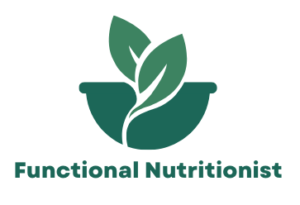A functional nutritionist is a person who is given full duties, responsibilities and authority by an authorized official to carry out functional technical activities in the field of nutrition, food and dietetic services both in the community and in hospitals. Nutritionist positions are divided into two job classifications, namely Skilled Nutritionist and Expert Nutritionist positions, each with the following criteria:

Skilled Nutritionist
Is a functional nutritionist position of skilled nutritionist whose duties include operational technical activities related to the principles, concepts and operational methods of activities in the field of nutrition, food and dietetic services.
Basically, the main duties and functions of a Skilled Nutritionist include collecting data, processing data by tabulation or cross-tabulation, making preparations, carrying out activities, and making reports.
Expert Nutritionist
A functional position of expert nutritionist whose duties include technical activities related to the development of knowledge, application of concepts, theories, science and art to manage nutrition, food and dietetic service activities and providing teaching in a systematic and appropriate manner in the field of nutrition, food and dietetic services.
The main tasks and functions of expert nutritionists include analyzing data descriptively and/or analytically, preparing designs, preparing proposals, preparing standards, evaluating activity results, and making reports.
Several elements assessed in the assessment of nutritionist credit points include the main elements and supporting elements. The main elements have a portion of 80% of the total assessment element value, consisting of elements of education, nutrition services, food and dietetics and elements of professional development. While the supporting elements are activities that support the implementation of nutrition, food and dietetics service activities. These supporting elements have a portion of at least 20% of the total assessment weight.
For Nutritionists who jointly create scientific papers/works in the fields of nutrition, food and dietetics, the provisions and distribution of credit points are 60% for the main author and 40% for the assistant author.
The provisions for the number of assistant authors consist of a maximum of 3 people.
Knowing the Importance of the Role and Duties of Nutritionists
A nutritionist or nutritionist profession is a person who handles, monitors, and evaluates various nutritional problems for certain groups of people. In other words, this profession has an important role and contribution to regulate the diet and nutrition of certain people.
This profession is usually tasked with monitoring patients suffering from cancer, pregnant women, kidney disease, and the community in general.
Then, in their duties, what are the main duties of a nutritionist? Below is a summary of their duties.
- Providing Socialization or Education about Nutrition
The problem of low community nutrition will be the task of nutritionists. Therefore, they have the authority or duty to educate the public about how to live a healthy lifestyle.
This nutrition education or socialization program must of course be from the official organization that covers it or in accordance with government regulations.
- Playing a Role in Nutrition Development Research
The influence of balanced nutrition will support welfare in society. Therefore, the job of a nutritionist is to conduct research to find solutions to improve community nutrition.
- Conducting Analysis or Diagnosis of Nutritional Problems
A nutritionist also plays a role in diagnosing patients who have nutritional problems. Usually, people with diabetes, cancer, and kidney disease rely heavily on a nutritionist to control and monitor their nutritional patterns.
- Providing Nutritional Consultation Services
Nutritional consultations are also the responsibility of a nutritionist. For example, they will provide advice and suggestions on a healthy lifestyle and how to have an ideal body. Consulting with a nutritionist is also very helpful, especially for people with certain diseases.
- Providing Nutritional Improvement Formulations or Nutritional Management
After consulting with a nutritionist, they will usually provide advice known as nutritional management. This recommendation is in the form of planning how to implement a diet to how food is served.
A Brief Information Regarding Nutritionists and Dietitians
Maybe a question arises in your mind. So, what is meant by a nutritionist and a dietitian? Are the duties of a nutritionist and a dietitian the same?
Nutritionists have a role in providing various information about nutrition and its problems and how to implement a good and healthy diet.
This profession can work individually, but there are also those who work in government. The degrees held are Bachelor’s Degree or Bachelor of Nutrition (S.Gz.) or Master of Nutrition (M.Gz.).
While dietitians are experts in the field of food and nutrition with the title RD or Registered Dietitian. They take the profession of nutrition until they pass the competency test. The role of a dietitian is to provide a diagnosis of nutritional problems and help to handle them.
So, the conclusion is that a dietitian and nutritionist actually have the same expertise, namely in the field of food and nutrition. The difference is the education process and the scope of their work. For their roles, nutritionists and dietitians have the same duties and responsibilities.
That’s all about the duties of a nutritionist and also other knowledge related to the field. It turns out that nutrition specialists have many duties and roles that are of course useful for improving the welfare of society.
In addition to the individual roles and differences between nutritionists and dietitians, it’s essential to note the evolving landscape of these professions in response to new health challenges and emerging research on nutrition and wellness. With a growing global emphasis on preventive healthcare, both nutritionists and dietitians are increasingly called upon to provide expert guidance not just in clinical settings but also across a variety of public and private arenas, including corporate wellness programs, schools, and community health initiatives.
The interrelationship between diet, health, and lifestyle diseases has become more pronounced, prompting nutrition professionals to engage more deeply in interdisciplinary collaborations. They work alongside doctors, nurses, public health officials, and educators to design comprehensive health initiatives that address lifestyle-related illnesses such as obesity, cardiovascular disease, and type 2 diabetes.
Moreover, with the rise of digital technology and telehealth, nutritionists and dietitians are now leveraging online platforms to broaden their reach, offering remote consultations and virtual workshops to increase access to nutritional services. This shift not only enhances their capability to impact a larger audience but also provides convenience and flexibility for clients seeking assistance.
Professional development remains crucial in this field. Continuous education is imperative for staying abreast of the latest scientific discoveries and nutritional guidelines. As such, nutritionists and dietitians often attend workshops, seminars, and courses to refine their expertise and adapt to the changing dynamics of health and nutrition.
In summary, the role of nutritionists and dietitians is multifaceted and integral to public health. They are not only tasked with immediate nutritional interventions but also play a pivotal role in long-term health strategies aimed at fostering a healthier society.








